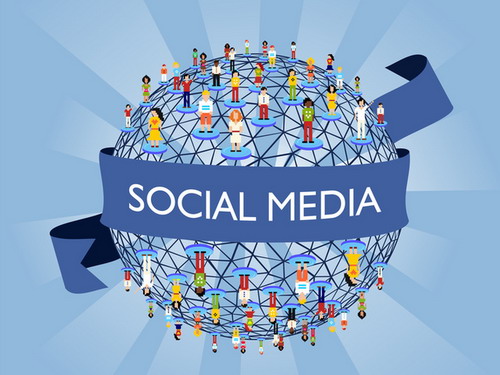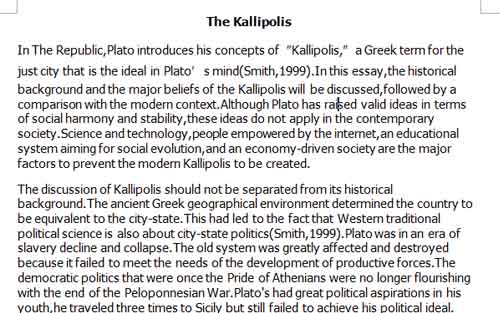本文是一篇Essay代写范文,题目为:New media technology brings opportunities and challenges,文章主要讨论新媒体技术的飞速发展给人际传播带来了前所未有的机遇和挑战。本文旨在考察情感活动在新媒体人际传播中的具体表现,系统分析新媒体人际传播的特点对个体和社会的影响,从而提醒人们对网络传播中情感活动缺失的现象给予足够的重视,从而促进社会和谐发展。

The rapid development of new media technology has brought unprecedented opportunities and challenges to interpersonal communication. Under the new media environment, people's interpersonal interaction becomes more quick, convenient, free and extensive. On the other hand, as a special mode of interpersonal communication, new media plays an important and complex role in the change of people's living conditions, quality of life, lifestyle, and even thinking concept. The anonymity and virtuality of interpersonal communication in new media make the demand and satisfaction of emotional activities totally different from that of traditional interpersonal communication, which profoundly affects people's perception of reality, and causes potential mental illness and social problems(Ying & Jiajing,2016). The purpose of this paper is to investigate the specific performance of emotional activities in the interpersonal communication of new media, and systematically analyze the impact of the characteristics of new media interpersonal communication on individuals and social, so as to alert people to pay enough attention to the phenomenon of lack of emotional activities in network communication, thereby, to promote social harmony and development.
The negative influence of New Media on interpersonal Communication
The rapid development of new media has overcome the time and space limitations of traditional interpersonal communication, expanded people's communication space, expanded people's means of communication, and greatly changed people's behavior(Ying & Jiajing,2016). BBS, blogs, podcasts, MSN,SNS, as the main means of communication, let people who may never be able to meet in reality can communication by new media, thus drawing close the emotional distance between people, and playing an increasingly important role in interpersonal communication. Therefore, the Internet is often considered to be a high-quality means of communication(Baym, Zhang, & Lin, 2004). However, even though new media play a positive role in promoting emotional activities in interpersonal communication, it is still need to realize that there are still some emotional loss worth discussing, these are hidden in the emotional activities of interpersonal communication on the internet. The expression of emotional deficiencies mainly includes the following two aspects.
The convenience and rapidity of new media lead to the coldness of interpersonal communication.
In recent years, new media technologies such as e-mail and SMS have gradually replaced the traditional face-to-face communication. Communication through e-mail, wechat,and other new media means can not let the other party hear the changing tone of voice, and the joy, anger, sadness contained in the sound, as well as the changes in the facial expressions. For example, if one people types the word "I am sad" in the form of electronic symbols, the other person may not know how sad this man is, and it is not easy to generate empathy in interpersonal communication. Unless the person uses more text to constantly convey the feelings, but this kind of situation is impossible in the network interpersonal communication which pays attention to efficiency and short transmission of information. People often use the most concise language to convey the information they need. Sometimes, even if the two sides cannot fully understand the emotional intention that the other side wants to convey, a few words of discord will result in one party taking the initiative to interrupt this kind of interpersonal communication. In this case, both sides may not be able to satisfy their basic feelings of mutual respect and mutual understanding, and the feelings between people will naturally be alienated and indifferent. In addition, when people communicate face-to-face, there is less time for each other to think. General language is the direct reaction of consciousness, but text communication is different. Words are concealed thinking. Because of the longer thinking time, the information conveyed by words is sometimes not a direct response of a person's consciousness. On the one hand, it may make people convey false information, on the other hand, it may make people bold and irresponsible, which easily leads to the lack of emotional trust. At the same time, if one person stays in such a virtual world for a long time, this person will lack communication with real people and nature, and will not be able to satisfy the desire for real dialogue with other people. Once these person return to real life, they will not be able to adapt, which will lead to self-awareness of ambiguity and confusion, aggravate the formation of isolation psychology, and even personality splitting (Baym, Zhang, & Lin, 2004). Thus will greatly affects the interpersonal communication in the real society.
The "Virtualization" of New Media leads to the loss of interpersonal Trust
New media interpersonal communication can not meet the deep needs of interpersonal emotion.The communication platform provided by new media is based on Internet, SMS, Blog, social network, MSN and so on. These platforms are obviously virtual. Many people often communicate with each other anonymously and in multiple identities. Therefore, there will be a loss of norms in words and deeds, and lack of authenticity(Ying & Jiajing,2016). Many things such as identity, name and so on can not be identified through network channels. The "social clues" of communication between the two sides are minimized, many information cannot be disseminated, and the information received by both sides is incomplete, thus unable to meet the deeper emotional needs of communication. However, deep-level emotional communication is an important purpose in traditional interpersonal communication. In online communication, although it is easy to make friends, it is not easy to obtain deep interpersonal feelings. For example, the trust and emotion that people want in face to face interpersonal communication is very difficult to obtain in the network interpersonal communication, even though some of them have acquired so-called friendship and love on the internet, but compared with the friendship and love acquired through traditional interpersonal communication, the probability of their stability is not very high. In fact, after the network interpersonal communication has become a kind of interpersonal communication mode used by more and more people, a lot of cybercrime has appeared in the society. Some people have a blind belief in the emotions on the internet. As a result, such feelings are exploited by criminals, and there are many such social crimes. Nowadays, most people maintain a strong self-defense against interpersonal communication on the internet, especially among strangers. This is because people out of self-protection, thus instinctively showing a state of psychological defense(Steven & Randall &Majors,1981).This is also the self-protection formed by too few "social clues" on the internet. The degree of self-defense is much stronger than that in face-to-face interpersonal communication. In addition, there is also a lack of concern for others in most of the network interpersonal interaction activities. People on social media may be more likely to meet their own psychological needs, and they are active in the social media mainly to vent their own feelings that can not be expressed in the real society, and to get self-recognition that can not be satisfied in the real society. However, the emotional commitment to others will be relatively conservative. Moreover, people are aware of the virtual and anonymous nature of the network, so most of them will choose to pay less. In addition, interpersonal relationships on the internet sometimes take on an idealized state, because the virtual nature of the network leaves room for the imagination of both sides, and this imagination is often based on the idealized object of communication in their own hearts, which is idealized and surreal. When both sides are trying to shape their "idealized self", the two sides of communication can form ideal and intimate interpersonal relationship, and can better meet the needs of emotional experience and emotional catharsis of the two sides of communication. But all these exist only in imagination, which is the interaction between "idealized self" and "imaginary communication object". Thereby, this imaginary emotional satisfaction is like emotional opium, which is simulated, unilateral, not real emotional satisfaction after interpersonal communication.
conclusion
People's new ways of obtaining information are impacting people's lives. New ways of interpersonal communication, such as Wechat and MSN, bring convenience to people, but also bring about new changes in the way of interpersonal communication. The difference between the way of interpersonal communication in network media and the traditional way of communication profoundly affects the way of human self-perception and understanding of the real society. When network language comes into our daily communication, it also brings about the lack of emotion in network interpersonal communication. Idealization in network interpersonal communication is the direct result of this lack of emotional activity. On the other hand, the technical characteristics of the network itself also form a certain obstacle to the transmission of emotional activities, because the internet text itself can not bring real emotional experience. For the individual, the failure of emotional communication and excessive wastage of time caused by this mode of communication will only lead to deep emotional loss and apathy. As far as society is concerned, it is the public opinion environment and the degree of human socialization created by new media have brought about new changes to the whole social psychology.While people are adapting to the emotional deficiency brought by this new media communication, they are also quietly changing their own way of thinking and personality. The group culture formed under this emotional deficiency brings about the loss of human nature in social development, and leads people to stay away from their true selves and become hypocritical and indifferent(Hou et al,2017). Therefore, we have to pay attention to the potential social risks brought about by the new media technology.
以上就是本篇Essay范文全部内容,欢迎阅读,范文内容和格式仅供留学生参考学习,不得抄袭,如有Essay代写需要,请咨询网站客服。










